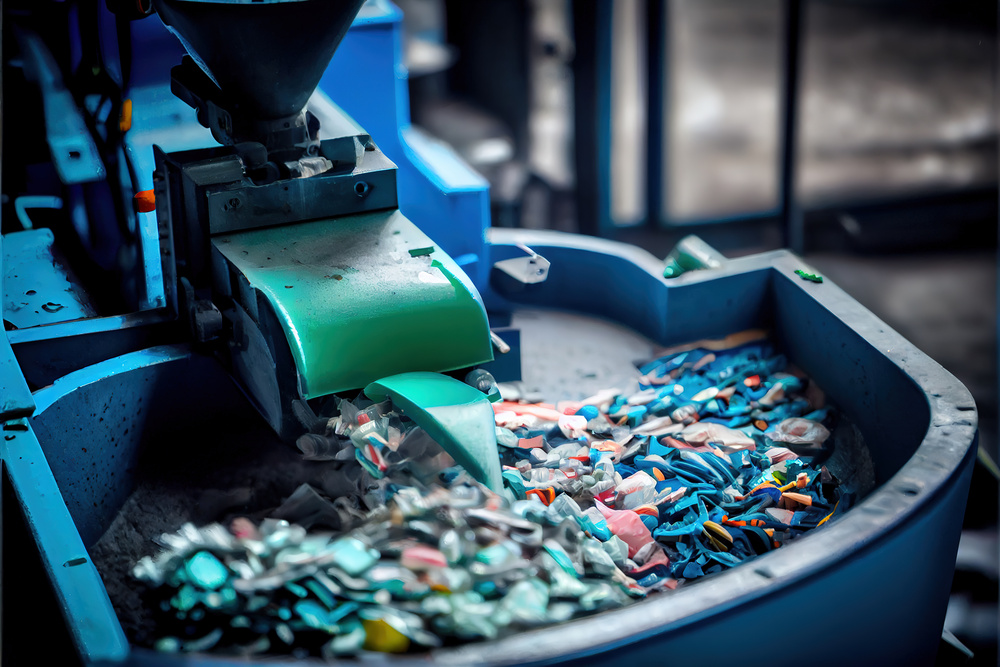The Relationship Between Oil Prices and Plastic Recycling

It is commonly understood that higher oil prices contribute to inflation by increasing fuel costs. When fuel costs more, it impacts transportation and logistics. Retail prices go up for just about everything as a result. But did you know that oil prices also impact plastic recycling? They do, and probably not in the way you would expect.
Higher oil prices actually make recycled plastic materials more attractive. The higher oil prices climb, the more demand there is for the plastic regrind we sell. You see, there is an inverse relationship between the cost of crude oil and the demand for virgin plastic. That relationship ultimately affects the demand for plastic regrind.
Plastic Is a Petroleum Product
This intricate relationship is driven by the fact that plastic is a petroleum product. As petroleum is refined to create gasoline, heating oil, etc., residue is created. That residue is base material for plastic resins. Now, think about the cost of producing plastic in relation to crude oil prices.
As crude prices rise, so does the cost of the refining residue. New plastic becomes more expensive to produce. Manufacturers are sensitive to that, having to pay attention to how much they spend on raw materials. So if virgin plastic costs more, they either need to make up for it in some other way or be content to earn lower profits.
In many cases, manufacturers will supplement with recycled plastic regrind. Regrind could end up being significantly cheaper than virgin plastic if crude prices climb high enough. And if manufacturers can get away with spending less by mixing regrind with virgin plastic, you know they will. Mixing regrind with virgin plastic is a viable option.
No Loss in Quality
Manufacturers typically do not want to use 100% regrind due to a loss of integrity that results from the grinding process. You cannot grind plastic scrap into small pellets without doing some damage. However, the loss of integrity is minimal. Regrind can still be combined with virgin plastic without sacrificing the quality or integrity of the new products that come from it.
In essence, there is room for recycled plastics in a lot of manufacturing applications. Manufacturers do not always have to use 100% virgin plastic. When they choose to mix in plastic regrind, they are saving money and helping keep industrial plastic scrap out of incinerators and landfills.
Market Demand Fluctuates
Getting back to the relationship between oil prices and plastic recycling, it is an up-and-down relationship, to say the least. Oil prices continually fluctuate. Prices go up; prices go down; they go back up again. It’s something we are used to in our industry.
We can make it work because our recycling process is simple and cost-effective. Municipal recycling programs cannot say the same thing. Municipal recycling is costly and inefficient due to sorting. Because of that, the recycled plastic that comes out the other end is much more expensive. This takes us back to the issue of oil prices.
As long as oil prices remain relatively low and stable, virgin plastic can be manufactured more cheaply than recycled material produced by municipal recycling programs. Municipal recycling simply cannot produce plastic regrind cheaply enough. But when crude oil prices begin increasing, things start leaning the other way. Demand for recycled plastic goes up commensurate with oil prices.
Crude prices do have an impact on what we do here at Seraphim Plastics. But know this: as long as demand for plastic regrind exists, we will continue buying industrial plastic waste from companies like yours. Contact us to see if your scrap plastic is something we can use.